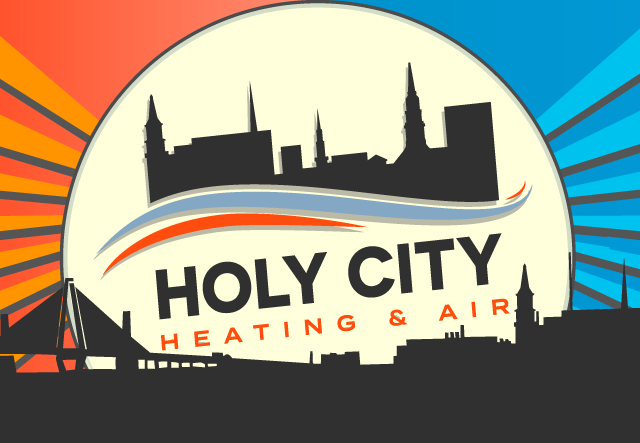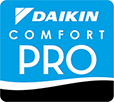For homeowners in Charleston, SC, keeping their homes comfortable during the hot summer months is a top priority. With the ongoing push towards sustainable and energy-efficient solutions, more people are exploring the benefits of geothermal cooling systems as an alternative to traditional air conditioning options. Geothermal cooling systems offer a reliable, eco-friendly, and cost-effective way to create a comfortable living environment while protecting the planet and saving on energy expenses.
Geothermal cooling systems work by harnessing the earth’s stable underground temperature to cool your home. These systems consist of a ground heat exchanger, an indoor air handling unit, and a heat pump, which work together to transfer heat between the ground and your home. During the warm months, the system extracts heat from your home and dissipates it into the earth, effectively cooling your indoor living spaces. The same system can also reverse the process in winter, providing an efficient source of heating as well.
Take a look at the insightful overview of geothermal cooling systems, explore their potential benefits, and learn how they can be a vital addition to your home’s HVAC arsenal.
1. How Geothermal Cooling Systems Operate
At the core of every geothermal cooling system is a ground heat exchanger (GHE), a series of underground pipes filled with a heat-conducting fluid. Additionally, these systems incorporate an indoor air handling unit and a heat pump to facilitate the exchange of heat between the ground and your home.
During the warmer months, a geothermal cooling system extracts heat from your living spaces, utilizing the heat pump to transfer it to the GHE. The GHE then disperses this heat into the cooler, stable underground environment, effectively cooling your home. Conversely, in colder months, the process can be reversed to provide efficient home heating as well.
2. Eco-Friendly, Energy-Efficient Performance
One of the most significant benefits of geothermal cooling systems is their energy efficiency. Unlike conventional air conditioning units, these systems do not rely on electricity to generate cold or hot air. Instead, they transfer heat to and from the ground using the heat pump, significantly reducing energy consumption and lowering your utility bills.
Additionally, geothermal cooling systems do not release pollutants or greenhouse gases into the atmosphere. They utilize a sustainable, renewable energy source – the earth’s heat – to provide an eco-friendly and environmentally responsible solution for maintaining comfortable indoor temperatures.
3. Longevity and Low Maintenance
Geothermal cooling systems are celebrated for their longevity and low maintenance requirements compared to traditional air conditioners. Since the majority of their components are buried underground or installed indoors, these systems are protected from outdoor elements and wear and tear, contributing to a longer service life.
While regular maintenance checks are still necessary for optimal performance, they are less frequent and generally less costly than for traditional air conditioning maintenance. With proper care, a geothermal cooling system can last up to 25 years or more, offering a long-term solution for climate control in your Charleston home.
4. Versatility and Customization
Geothermal cooling systems are incredibly versatile. They can be installed in new construction projects or retrofitted into existing properties, making them suitable for various home types and sizes. Furthermore, these systems can be customized to accommodate your specific comfort and energy-efficiency preferences.
Geothermal cooling systems offer various configurations, such as horizontal and vertical ground loop installations, pond or lake loops, and open-loop systems that utilize well water. Consulting with our professional installer will help you determine the ideal configuration for your home, ensuring maximum benefits and long-lasting home comfort.
Investing in Geothermal Cooling Systems: Factors to Consider
When contemplating the adoption of a geothermal cooling system, it’s important to keep the following factors in mind:
1. Evaluate Your Home’s Suitability
Evaluate your property to determine its suitability for geothermal system installation. Consider factors such as soil type, land size, and possible access to water. Consulting with our geothermal expert will help you determine whether your home can accommodate a geothermal cooling system and what configuration is most appropriate for your specific needs.
2. Understand the Costs and Financial Incentives
While geothermal cooling systems can entail higher upfront costs compared to traditional air conditioning systems, their long-term benefits and potential energy savings often justify the investment. Analyze the installation and maintenance costs for your geothermal system and explore available financial incentives, such as federal tax credits and local rebates that might offset the initial expenses.
3. Seek Expert Consultation and Installation
Proper installation of a geothermal cooling system is essential for ensuring lasting benefits and optimal performance. Working with our qualified and experienced geothermal installer can help you navigate the entire process, from selecting the ideal configuration to addressing any challenges that may arise during installation.
Find Comfort in an Eco-Friendly Way with Geothermal Cooling Systems
Geothermal cooling systems offer Charleston homeowners an opportunity to enjoy comfort, energy efficiency, and environmental sustainability simultaneously. By harnessing the earth’s stable underground temperature, these systems provide a long-lasting, low-maintenance, and eco-friendly solution for maintaining comfortable indoor temperatures. With their versatility and customization options, geothermal cooling systems can accommodate various property types and sizes, making them a viable option for many homeowners.
If you’re intrigued by the potential benefits of these innovative systems and want to explore whether they’re the right fit for your home, get in touch with us today at Holy City Heating & Air, LLC. Our experienced team can help you navigate geothermal heating and cooling and determine the optimal solution for your Charleston home. Contact us today to schedule an appointment!






